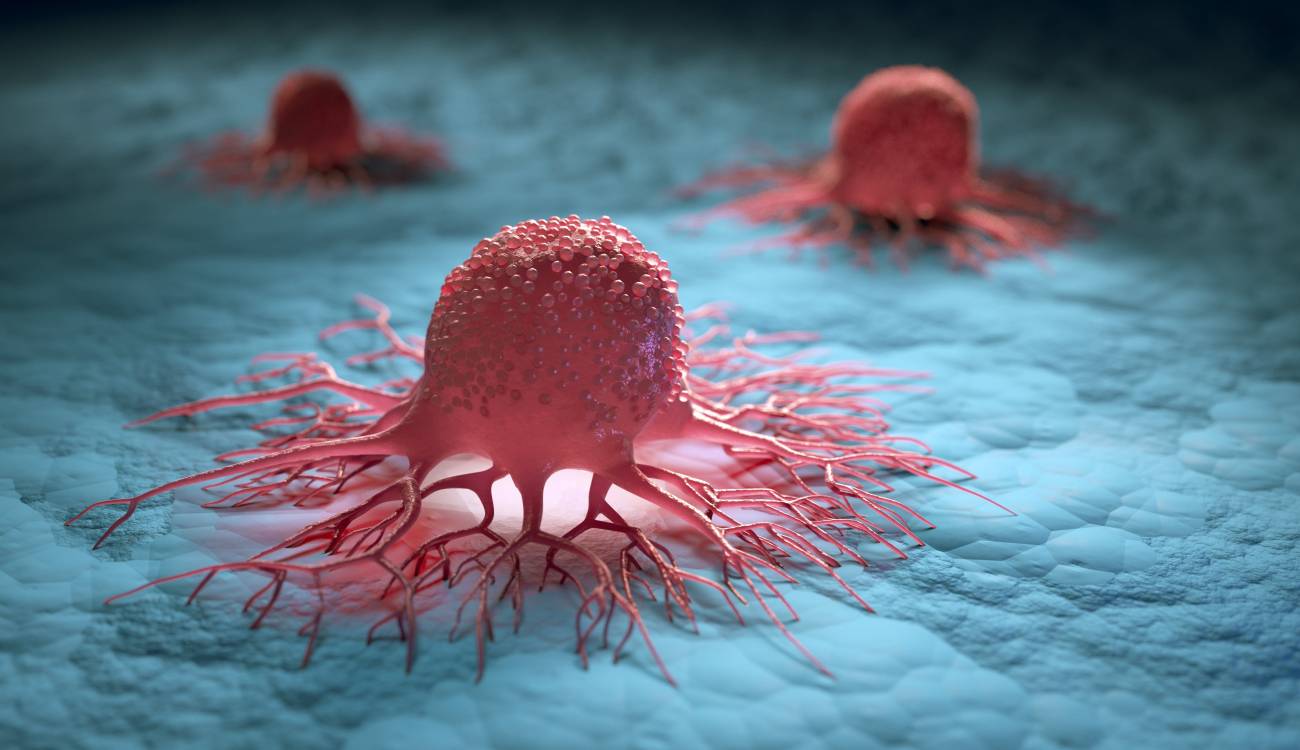Reactions to the finding of new combinations of mutations, 'mutational signatures', associated with specific cancers
Whole genome analysis of more than 12,000 tumors has identified new patterns of mutations associated with specific cancers. These combinations generate specific mutational signatures, the study of which provides information on environmental factors causing the mutations. The work is published in Science.

3D illustration of a group of cancer cells. / Adobe Stock
Nuria López-Bigas - firmas mutacionales cáncer - EN
Nuria López-Bigas
Head of the Biomedical Cancer Genomics group at IRB Barcelona, ICREA research professor at IRB Barcelona and associate professor at Pompeu Fabra University
Throughout life the cells of our tissues accumulate mutations. These mutations are caused by intrinsic and extrinsic mutational processes, such as tobacco, ultraviolet light and many others. Each of these mutational processes leaves a specific mutational fingerprint or mutational signature. By analyzing the pattern of mutations in tumors, these mutational signatures can be extracted and the mutational processes active in the history of these cancer cells can be identified.
This work, led by professor Serena Nik-Zainal of the University of Cambridge, reports the largest analysis to date to extract mutational signatures in human cancers. To do this, they analyzed 12,220 whole genome sequenced tumors from patients recruited from the UK National Health Services (NHS) under the Genomics England 100,000 Genomes project. Analysis of these cancer genomes confirms known mutational signatures and identifies new ones.
The study is comprehensive and rigorous, and provides a useful resource with all identified mutational signatures and their characteristics. In practical terms, it provides a framework for identifying mutational signatures in newly sequenced tumor samples to gain insight into the intrinsic and environmental exposures to which these cells have been exposed. In some cases, this information has clinical implications for personalized cancer treatment and/or diagnosis.
Xosé Bustelo - firmas mutacionales cáncer - EN
Xosé R. Bustelo
CSIC research professor, scientific director of the Cancer Research Centre, Salamanca, and former president of ASEICA
This is a very interesting publication that addressed a pending issue in cancer genomic studies: the optimal identification of mutational signatures in most tumors.
Although these signatures had already been found in the Pan-Cancer project studies, it was known that there were gaps to be filled. In fact, studies published in Nature in 2020 had detected some tumors that, surprisingly, lacked such mutational signatures. This was very rare, since mutational signatures are what ultimately predetermine the mutations involved in the origin and subsequent development of most tumors. In this study the authors developed tools that allowed them to address this problem and solve it successfully.
Another interesting point is that, to increase the sample size and validation of the results obtained, they used genomic data from different sources: one of their own (from UK cancer patients) and two independent ones from international consortia that had been made public. This allowed them to discover several new mutational signatures that had different frequencies in patients and, surprisingly, were generally associated with specific tumor types. This indicates that different tumor types are likely to have different mutational processes.
They were also able to classify the mutational signatures into several categories according to their possible cause: those due to cell-intrinsic processes (arising from failures in DNA replication and repair) and extrinsic ones, due to some carcinogens, metabolic products, environmental factors (some already known such as UV rays or tobacco). Those of the first class could be interesting to develop predictive analyses (their detection would indicate a potential tendency of the individual to develop tumors). Those of the second class would be interesting at a preventive level (avoiding these mutations through changes in diet, exposure to chemical or environmental compounds).
It is important to note that in some cases the researchers were unable to associate the signatures discovered with any known molecular or environmental changes, which indicates that there is still much to be known about how normal cells acquire the mutations that give rise to cancer.
Another important aspect of the work is that they have developed a new computational tool that, from now on, will serve the scientific community to discover such mutational signatures in genomic studies from now on.
María Mayán - firmas mutacionales cáncer -EN
María Mayán Santos
Research Group Leader at the Center for Nanomaterials and Biomedicine (CINBIO) of the University of Vigo
Serena Nik-Zainal's group at the University of Cambridge, in collaboration with groups from the Genome Project in the UK, performed an analysis on a large number of samples from different tumor types that provides new data on new patterns of mutations, which define different types of tumors. The team has made an extraordinary effort in analyzing thousands of samples of primary and metastatic tumors. Within this study, the ability to detect rare mutations that, according to their analysis, would turn out to be mostly context-specific, i.e., specific to the tissue where the tumor is located, stands out.
The authors have developed a methodology that will be very useful in the future for a more personalized diagnosis and for the development of combined therapies and new drugs that will allow patients to be treated more effectively depending on the type of tumor and the mutational signatures present in the tumor.
Andrea Degasperi, University of Cambridge, MRC Cancer Unit
Serena Nik-Zainal, University of Cambridge, MRC Cancer Unit
- Research article
- Peer reviewed
- People
